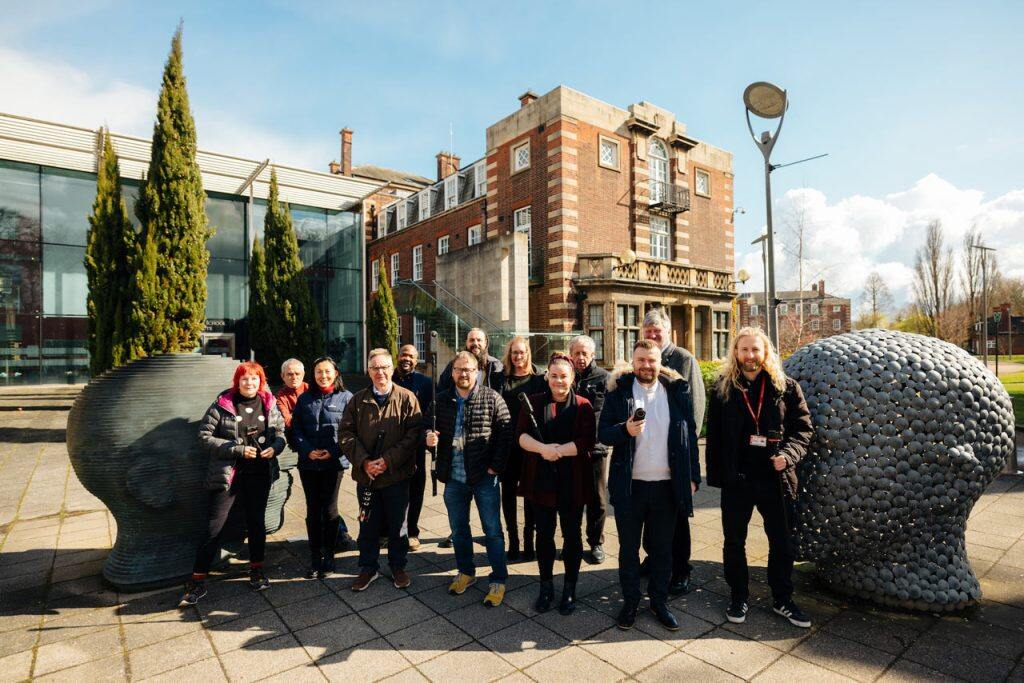Members of the Yorkshire & Humber Institute of Technology have met at the University of Hull to explore how 360-degree, interactive video could boost learning and teaching.


The 360 Interactive Video Project gathering – which took place on Thursday 31 March on the University’s campus – saw partners share their experiences of using interactive videos, as well as discuss new ideas to take the technology forwards.
YHIoT partners include Askham Bryan College, Bishop Burton College, Craven College, East Riding College, Selby College, Scarborough TEC, York College, York St John University and the University of Hull.
The initiative was launched to help partners invest in industry standard equipment and provide a higher level of technical training. It aims to enhance employment opportunities and ensure highly qualified employees for the region’s employers.
Professor Becky Huxley-Binns, Pro-Vice-Chancellor (Education) at the University of Hull, said: “The University was pleased to welcome Yorkshire and Humber Institute of Technology partners and recognised the value of this opportunity to collaborate and share expertise in this important area of digital technology use for learning, teaching and assessment across Education.”
Partners were able to share experiences in developing their uses of the technologies in their own college and to describe their current video project, as well as relate experiences and issues in the use of equipment on the day.
Part of the session included troubleshooting, where those who had experimented more widely were able to provide useful tips to enable optimum use of the technologies.
A tutorial on the use of the Qoocam camera was also provided following requests for support.
The 360 cameras and related equipment for each of the seven partner colleges and the two universities has been funded through the Yorkshire and Humber Institute of Technology.
During the day, partners engaged in the use of the SEPA 360 project and learned about the decisions to be made on the three main purpose of videos Learning/Instructional, Modelling, and Explore, which need to be considered when deciding why a 360 video is the appropriate choice to teach, learn or be assessed on a particular topic/activity.
Annabel Jelley, Head of YHIoT, said: “A problem shared is a problem solved – this was the ethos of this workshop which helped everyone to maximise the opportunities brought by this technology.
“We saw the benefits of getting all the Institute of Technology partners together to share their understanding and utilise this equipment effectively for the benefit of students.”
Colleagues provided ideas on what they would want to learn and practice in a further session day on 26 May.
An online session with the SEPA 360 Project Vivista developers is also planned for partners to share their experiences of using Vivista and how they have resolved issues.
The 360 Interactive Video Project is a joint project linked with the Erasmus SEPA 360 project.
It is led by Professor Kevin Burden of the Department of Education in FACE, and includes universities in Hasselt (Belgium), Vienna, Thessaloniki and Florence.






































